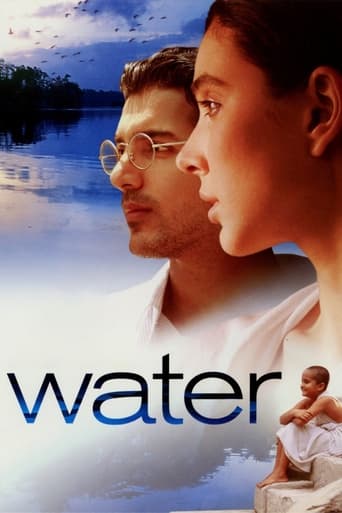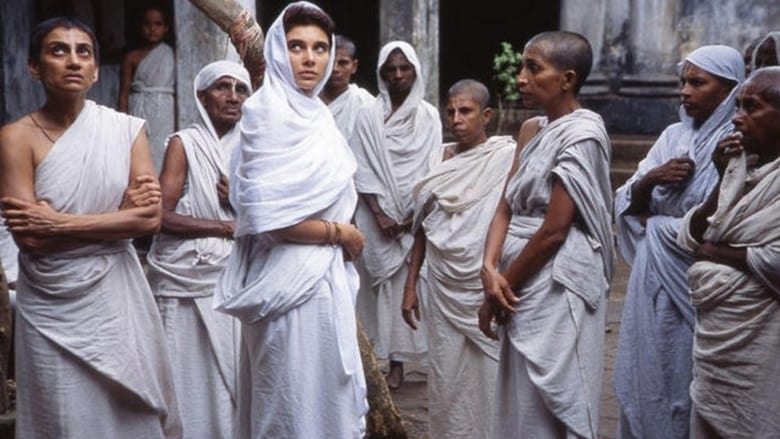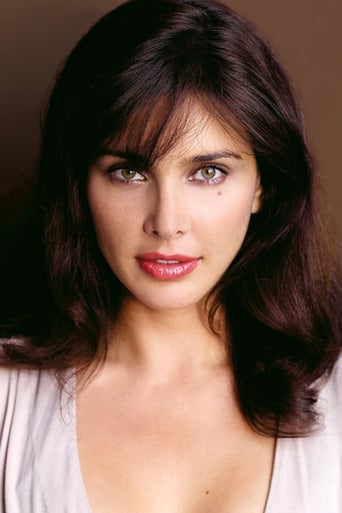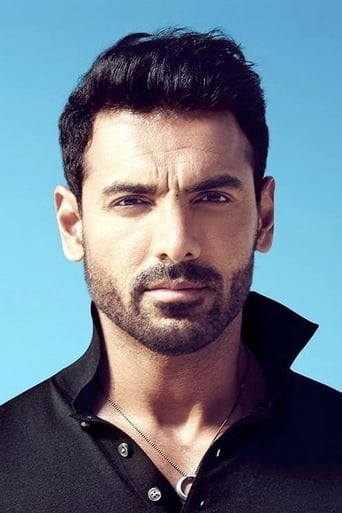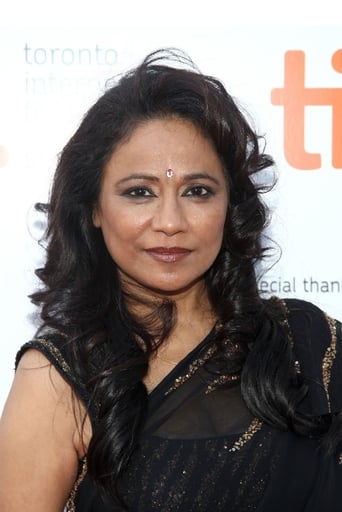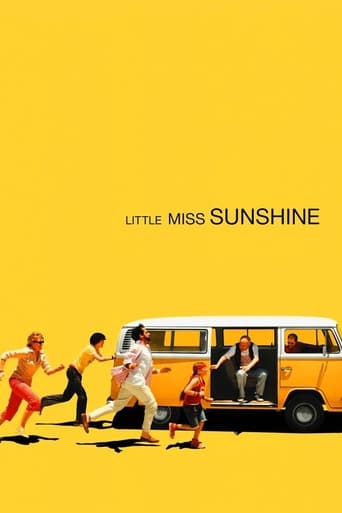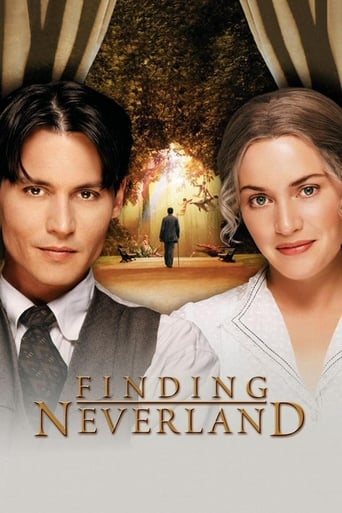Water (2005)
The year is 1938, and Mahatma Gandhi's groundbreaking philosophies are sweeping across India, but 8-year-old Chuyia, newly widowed, must go to live with other outcast widows on an ashram. Her presence transforms the ashram as she befriends two of her compatriots.
Watch Trailer
Cast


Similar titles
Reviews
Film Perfection
It's hard to see any effort in the film. There's no comedy to speak of, no real drama and, worst of all.
A great movie, one of the best of this year. There was a bit of confusion at one point in the plot, but nothing serious.
It is an exhilarating, distressing, funny and profound film, with one of the more memorable film scores in years,
This is perhaps one of the most gripping films I have ever seen. The theme of water is so beautifully intertwined with the story in the location shots, boats across a lake/river and the ever falling rain to deliver an impact upon the characters and their journey.The treatment of these widows, and the intense life that these women are forced to live was eye opening.John Abraham gave a good performance. Lisa Ray was decent. Chuiya was great. With its top-notch acting, cinematography and music, Water is definitely worth the watch. Excellent effort by Deepa Mehta. Awesome cinematography Giles Nuttgens. Nicely edited by Colin Monie. Screenplay by Anurag Kashyap was awesome so were his dialogues. Set decoration by Rumana hamied n Lal harindranath was brilliant. Good music by Mychael Danna n A.R Rehman. Roger Ebert of Chicago Sun-Times @ The film is lovely in the way Satyajit Ray's films are lovely and the best elements of Water involve the young girl and the experiences seen through her eyes.
Imagine being a widow at the age of eight and having to live the rest of your life as an outcast in renunciation. The movie "Water" explores this aspect of Hinduism that is viewed as sinful in western culture. "Water" takes place in India during the year of 1938 when laws existed to give widows the freedom of marriage, but however, as said by one character "We do not always follow the law when it is inconvenient." Torn, Chuyia(Sarala Kariyasam) was forced to live in a ashram controlled by other lifelong widows. In the ashram Chuyia befriends a beautiful widow named Kalyani(Lisa Ray) who was the only one allowed to have long hair. This was because the leader of the ashram Madhumati(Manorama) made arrangements with pimp Gulabi(Raghuvir Yadav) to supply Kalyani to their wealthy clients as a source of income. Chuyia later meets another older widow named Shakuntala(Seema Biswas) who was rather wise and questions the foundation of widowhood. One day Kalyani and Chuyia run into a man named Narayan(John Abraham), upon seeing Kalyani he immediate falls in love. Narayan is a young and charming upper-class follower of Mahatma Gandhi. He later gives the most pragmatic explanation for the practice of widowhood: "One less mouth to feed, four less saris, and a free corner in the house. Disguised as religion, it's just about money." Through countless amount of attempts and huge amounts of effort, Kalyani finally starts to converse with Narayan. Shortly after, they decide to get married, this angered Madhumati who then cut Kalyani's hair and locked her in her room. After a long debate with herself, Shakuntala demands for the key to Kalyani's room and frees her. Narayan takes Kalyani on a small rowboat to his house to meet his parents, however Kalyani immediately recognizes the house and the house of one of her clients, she orders Narayan to turn around. The embarrassment and grief was too much for Kalyani to handle, therefore she committed suicide by drowning herself. Meanwhile, Madhuati send Chuyia away with Gulabi to be prostituted as a replacement for Kalyani. Upon realizing, Shakuntala runs to the shore to try and prevent the worst, but only in time for Chuyia's return. Shakuntala is destroyed by this and cradles Chuyia in her arms while she spends her nigh sitting at the shore. While walking through town with Chuyia she hears about Gandhi's departure at the train station, Shakuntala follows the crowd to receive his blessing before he leaves. As an act of despair Shakuntala runs along side the train asking people to take Chuyia with them and put her under the care of Gandhi. Luckily, she spots Narayan on the train and gives Chuyia to him, the train departs leaving Shakuntala behind in tears and taking Chuyia into a hopefully brighter future. An aspect of Water that I liked was how they involved the young girl and the experience seen though her eyes, so that all the viewers can in a way empathize with Chuyia. I feel that the movie would have been good enough with Chuyia's story along but the romantic aspect of Kalyani and Narayan just added to the emotions felt during the movie. The love story does not end happily which helps set the mood of there still being a glimpse of hope at the ending. In my opinion, I really like how the romantic aspect was incorporated into the movie, but more so I like the way Shakuntala was questioning the very morals behind the underpinning of her society. Although the romantic aspect were good, I fell that they could have been developed more. To be honest, I was a bit disappointed when Kalyani drowned herself, I was hoping for a more hopeful ending to the romantic aspect of the story. For example, once they are married Kalyani takes Chuyia with her to start a new life elsewhere.
Deepa Mehta is an amazing film maker who's trilogy (Fire, Earth, and Water) give a glimpse into the struggles women in India faced with their own identity and independence. Water, my favorite of in the trilogy, is a powerful film set in India around the mid 1930's. It tells the story of a ashram of widows and how they are condemned to be outcasts because their husbands died. At this time of arranged and child marriages, it was not uncommon for young child brides to be wed to older men. If the men died and another brother did not marry the widow, she would be sent to live in the Ashram. The widows would be condemned to a strict life of poverty and worship. Surviving from what little money they got from begging. It would be considered unlucky to interact with them if you were pregnant. They were also had to wear all white as a way to set them apart from society. It is almost like they are living ghosts. Although at the time the movie takes place, it was legal in many provinces, it was very taboo. This movie follows a young child bride who fights against the role of being a widow that society places upon her.
This film Water, directed by Deepa Mehta is one of the most touching film I have ever seen. Filled with many cultural and religious insights, this film has a very interesting plot, with characters from an ashram ( a house for widows). With the arrival of the main character, seven year-old widow Chuyia, other widows question their lives and begin to doubt the traditions of their religion. She is separated from her parents, her hair is shaved off and she is only allowed to wear white clothing. According to the Hindu traditions since woman have to be devoted to the husband, when the husband dies the wife either dies with him or lives a life of self-denial. In this film when Chuyia's auntie (Patiraji) was dying in the ashram, a widow asked Chuyia to fetch some water from the Holy river. This clarifies that they believe the water of the Ganges River is holy. I enjoyed the fact that romance between Kalyani and Narayan was part of the plot, making the film so much more emotional. Overall this film exemplifies a great image of the life of an Indian widow in the 1930s. Especially followed by the rising figure Ghandi, the end of the film clearly convey the fact that many people in India, not only widows believe that 'Ghandi is one of the few people on Earth who speaks for his conscience.' This quote shows that there are very few people in the world who like Ghandi speaks for the people and speaks for what he truly believes in. I think that Deepa Mehta sent out a great message out through this film that sometimes religions can cause a very unfair life. Sometimes trusting your conscience and bending the rules will lead to a much better and joyful life.

